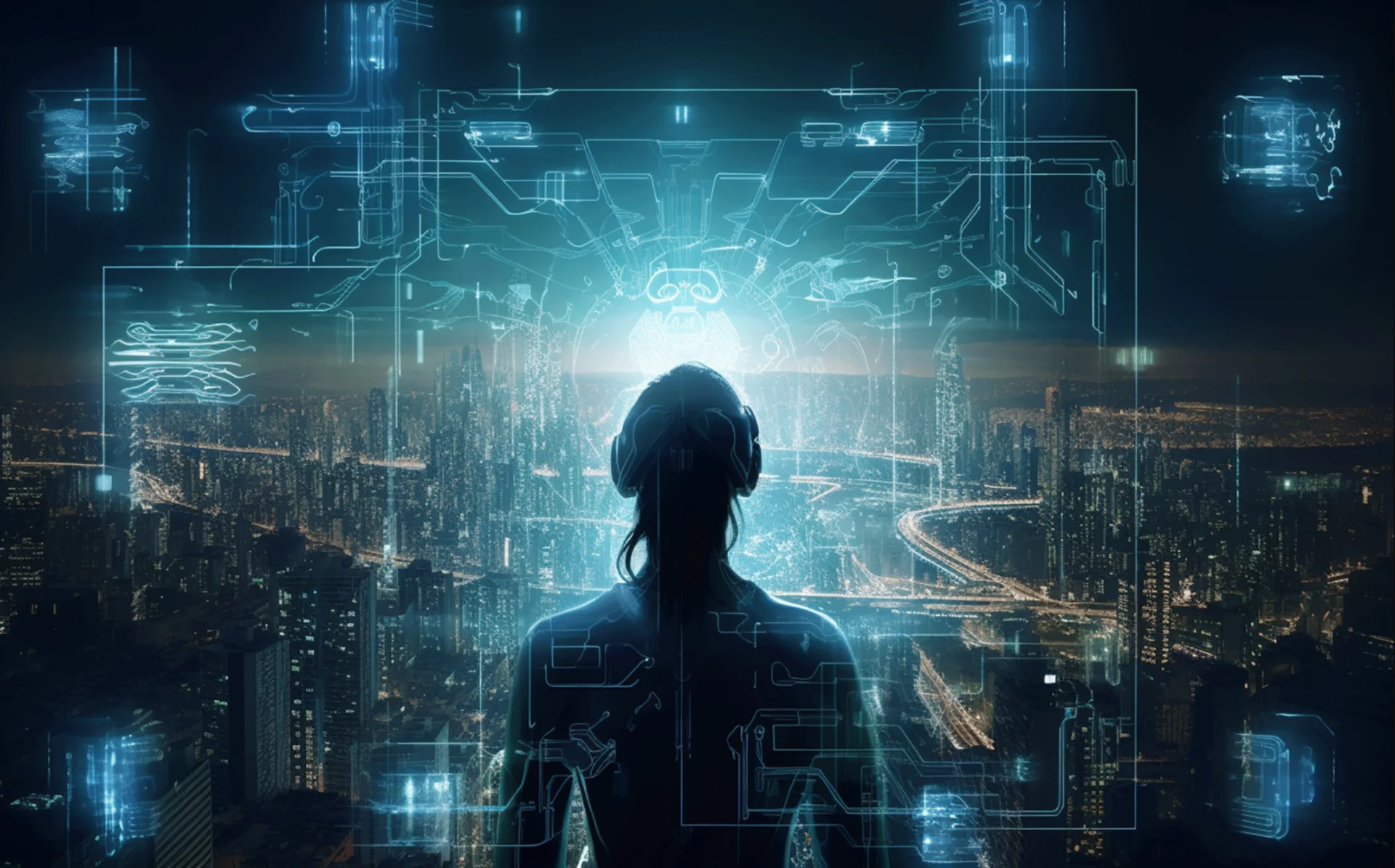Source: Summit of the Future logo. UN.
Approaching the future is a creative exercise. It is not suitable for realists privileged people who cannot see beyond the urgency of the present or purely rational paradigms. If, in addition, we are dealing with an urgency of the present based on crises and confirmation biases, where certainties are scarce, the exercise of projecting our future becomes more difficult.
However, Jules Verne, Isaac Asimov or Aldous Huxley have been closer to decoding our present (idealistic or dystopian) than any historical materialist, politician, or realpolitik bureaucrat of the 19th and 20th centuries. If this is so, beyond our current global emergency with touches of anxiety, contradictions, and questioning of common sense: What future can we imagine?
Source: Portrait of Isaac Asimov. Meer magazine.
I dare to let my imagination run wild and think of scenarios considering the political, social and economic spheres.
- It is very likely that there will be a civil war in some western country due to discrepancies in terms of values.
- Perhaps there will be a kind of legalization of polygamy to create a legal framework to protect people in polyamorous relationships, allowing them to inherit and insure their loved ones.
- It may be that the vacation home rental model pioneered by Airbnb will be the dominant form of home rental. Very few people are able to own a home of their own. As an alternative to this impossibility, many people prefer to buy shares in such applications and make a profit from their use of it.
- In the face of water scarcity, water recycling is becoming commonplace. In many homes, there are specialized devices to recycle all types of water, based on space technology.
Source: Reference images created with Google AI Platform
- Gradually, in the face of power outages, homes are starting to have multi-source power plants that include solar, wind, gasoline, gas and organic matter.
- As in the past, face-to-face classes end up being a luxury that not all families can afford. Lower and lower-middle class people opt for a completely virtual education with a variety in quality depending on economic capacity.
- After multiple leaks, people’s health data became public in many western countries and become an implicit criterion when evaluating jobseekers.
- National currencies cease to exist, because of special mining, gold reserves quadruple, but are only concentrated in certain countries, where their currencies prevail over the rest.
- The sovereignty of countries is weakened and power is not concentrated in national governments. Sub-national and local governments gain more power to administer policy at the territorial level and tax collection is more direct. Meanwhile, supranational structures maintain the administration of territorial and special mobility.
- Theocracies will return in regions frustrated with democracy and enjoy stability.
- Latin America will be positioned as the new most attractive region in the world due to its low population density relatively to its territory.
- Antarctica will be invaded and there is a turf war.
- Drug trafficking officially creates or conquers the first country. But, in an unexpected twist, this country is maintained, as the other countries use it to send in inconvenient dictators and criminals. This ends up becoming a large self-run prison.
- A glitch in the artificial intelligence produces a serious accident, and they begin to restrict its use. Special permission from the government is needed to use certain programs.
Source: Reference images created with Google AI Platform.
In this brief exercise in foresight, positive or negative assessments can be made. My ideas may be realistic, cynical, or commonplace, but the focus of the conversation is not what kind of future we may or may not have. How we are discussing the future, how we make an effort to stop and think about where we are going and with what tools: will it be progress or regression?
In September of this year, the Summit of the Future will be held in New York, a United Nations event that brings together world leaders to forge a new international consensus to improve the present and safeguard the future. This summit has a twofold objective: to accelerate efforts for international commitments and to take concrete steps to meet new challenges and seize new opportunities. To this end, an action-oriented outcome document will be produced, to be called A Compact for the Future.
This pact promises to be a turning point in transforming global governance, first by proposing reforms to such important bodies as the UN Security Council, as well as by promoting peaceful and sustainable means on the use of outer space, artificial intelligence and the neglected defense of civilian rights in conflict zones. Even so, experience tells us that the future is built from other instances.
In that sense, beyond the Summit of the Future, it is necessary that the Verne, the Asimov, the Mary Shelley or the Edward Bellamy of this generation come to light. I am not one of those who think that there is an intellectual orphanhood or numbness of ideas. Instead, there is a greater distraction to our senses and a significant economic concentration that prevents us from seeing our humanity from different perspectives.
Power wants uniform thinking, even in new technologies such as artificial intelligence. Just take a look at the images I have used for this article, through Google’s Gemini platform. Do these tools facilitate my creativity or stunt it? Why do all the images look alike? My ideas must fit the aesthetics of this company if I want to use them. This hides dangers beyond the notion of immediacy.
I am convinced that the future is not only defined by politicians. It has never been like that in any era, neither have those who concentrate all the economic or technological power. Yesterday they were called Rockefeller or Carnegie, today they can be called Musk or Zuckerberg. The truth is that the future begins and is built based on those who suffer the problems of the present, not those who live comfortably in their privileges.
For this reason, and taking advantage of the fact that the future as a concept will be an important global issue in the coming months, I would like to invite especially the younger people of the region to challenge their governments in the face of this Summit of the Future, either by generating policy proposals for this event, as is happening in Peru, or by generating alternative instances or content at an intellectual level that invites us to imagine beyond the parameters of the status quo.
*Translated by Janaína Ruviaro da Silva from the original in Spanish.













